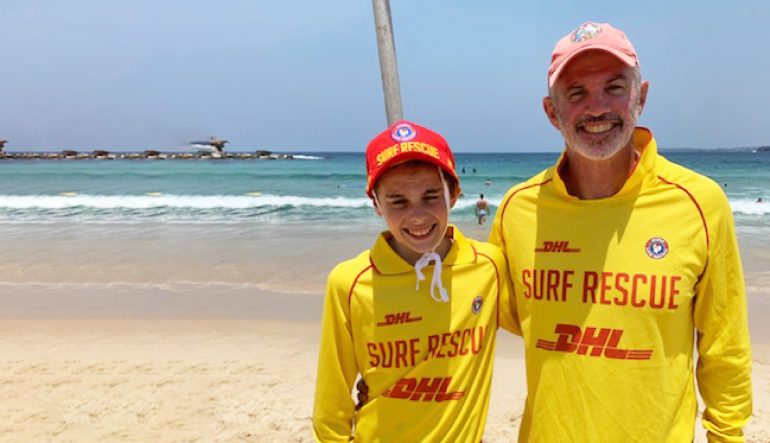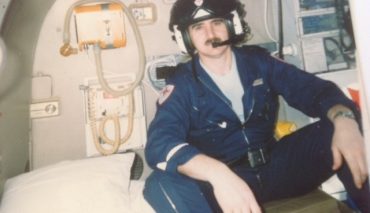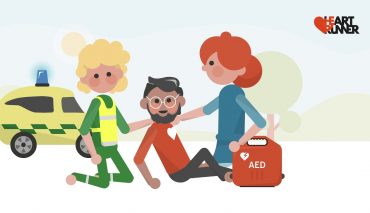Why I volunteer: Joe Porteus
Rapid Response Revival’s Head of Strategic Partnerships, Joe Porteus (pictured) is an avid volunteer.
For close to 20 years, Joe has spent his winters coaching rugby in Sydney’s eastern suburbs. For the last 13 summers, he has been a volunteer North Bondi surf lifesaver.
Surf lifesavers are emergency first responders, trained to protect and save beachgoers from the dangers of the surf. As a volunteer surf lifesaver, Joe has performed countless rescues and had plenty of opportunities to apply his CPR and first aid skills.
Here’s Joe in his own words, on what it means to him and his family to be volunteer first responders.
I don’t think of myself as a volunteer. It’s just something I’ve always done.
The surf lifesaving started when we introduced our eldest to Nippers, the junior surf lifesaving training program. Nippers starts training future lifesavers from as young as six years old; by the age of 14, if you’ve been through Nippers from an early age, you’re ready to become a surf lifesaver.
I got involved because I got bored watching! It was also an opportunity to be actively involved in something with my kids.
So, I started going through the training myself. Pretty soon, I put my hand up for an age management role – that is, I’m responsible for taking a group of Nippers from age 6 all the way through to their graduation at age 14.
My youngest is about to finish her Nippers training, 13 years after our family started at the North Bondi Surf Lifesaving Club.
A family affair
There was a time when Nippers was all-consuming for us. As a family, we were on the beach seven days a week – training, competing and helping out with the Club.
We’d definitely do it all again if we had our time over.
Now, I make sure I’m rostered on for patrol at the same time as my kids. The elder two are now fully-fledged lifesavers themselves, and the youngest will join us as soon as she graduates from Nippers.
That time together on patrol is really special, for all of us.
Being part of something
It didn’t take long for my involvement with the Club to become part of who I am.
There’s a real spirit of community that comes from being involved in surf lifesaving – not only for the adults, but the kids as well.
It’s a great leveller. Being a Nipper or a volunteer lifesaver, it cuts across demographics, across schools, social barriers. The kids have made really strong friendships with people they wouldn’t have met otherwise. And we’ve all been able to give something of ourselves to this community.
Being a lifesaver has given my kids a lot of confidence. Saving a life is a really empowering thing for anyone. It’s especially powerful if you’re a teenager.
RELATED ARTICLE: Community first responders link in chain of survival
My kids identify as surf lifesavers now. It’s part of who they are. They’ve come to realise they have skills most people, most adults don’t have. Their abilities are special, and valued.
It’s something they can genuinely be proud of.
As a parent, I’m proud of them, and grateful at the opportunity to have played an active role in them reaching this point.
Teaching resilience
Seeing kids develop to the point where they can swim 300 metres out into the surf, and 300 metres back – that’s huge. The personal development required to conquer that fear, and to be able to achieve that, physically and mentally, is incredible.
I’ve had to go through the same training. You’re swimming through the breakers, on your way out to open water, and you put your head up to see how far you’ve come; every time, you’ve only covered half the distance you thought you had.
I don’t recommend joining up to many people, because it’s really hard. It’s hard work.
There’s a lot of glamour associated with surf lifesaving, for outsiders looking in. But four out of five people who start the training, or join Nippers, don’t stick at it. It’s the 80/20 rule.
People who stick at it, usually do it because of family. Parents and kids are more invested.
There’s also a resilience required for this type of volunteering. A toughness. Because when you’re doing rescues, people need you to be resilient, to be focused.
Going through the training, learning the skills, it teaches that resilience.
Now at work, I know I’m capable to help if something goes wrong. I’m ready to overcome the stress of an emergency and take immediate responsibility in a critical moment.
Saving lives
That willingness to take responsibility is a huge part of being a surf lifesaver.
Every time we go on patrol, we have to help people in various levels of distress.
Even experienced beachgoers get into trouble sometimes – and there are always people who throw themselves into the surf without any awareness of the dangers.
People are relying on you being the one to save them when things go wrong – and they do go wrong, all the time.
I was on patrol on a Christmas Day a couple of years ago. I rescued a guy who was nearly gone.
I remember the look in his eyes. He’d almost lost hope. I remember it vividly; it was so hard to see.
Inspired by others
Some of the volunteers on this beach are incredible. The time and energy they put in, I’m nowhere near that level of commitment.
I’m in awe of those people, that they give of themselves and their skills so freely. To people enjoying the beach, and to the kids training to become surf lifesavers.
It’s people like that who inspire me, and have given me this opportunity to give to our community.
I get a real sense of belonging out of this too, to do something with my family. It’s a positive environment, where we’ve all learned things that matter, alongside people we want to spend time with.
Being volunteer surf lifesavers has become a part of who we are as a family. I wouldn’t give it up for anything.
RELATED ARTICLE: How much do we rely on volunteers?



